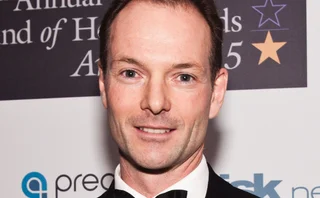
Best specialist FoHF over $500m over three years: Prima Capital Fund
Fundana's long-term investors put a premium on stable equity long/short funds

Hedge Funds Review European Fund of Hedge Funds Awards 2015
Fundana takes a direct approach to managing equity long/short funds. "If you're trying to nail the manager on whether he's picked the right or the wrong stocks you're probably going to fail," says Cedric Kohler. "We're not the experts, which is why we do delegation of funds."
His role as head of advisory for Fundana, he says, is "to understand where performance is coming from". If returns are not repeatable, if they come solely from beta or taking illiquidity risk, it's "goodbye", he adds.
Fundana manages $1.3 billion of hedge fund assets on behalf of investors that are mostly pension funds and asset managers, with $850 million invested in equity long/short funds and the rest going to multi-strategy funds that specialise in event driven, global macro and managed futures.
Its Prima Capital Fund, which won best specialist fund over $500 million over three years at the Hedge Funds Review European Fund of Hedge Funds Awards, has about 30 managers, mostly US-based. "Managers have a tendency over there to do real stock-picking, which is not the case in Europe or in Asia," says Kohler, reasoning that European managers investing across different countries can become more reliant on market timing than stock-picking.
Prima invests about 65-70% in its top 10 managers. It currently invests 3.6% of its capital in its 10 smallest managers, in effect providing a Petri dish for testing smaller managers. "We've got a bunch of managers we are testing, that have launched this year and last year," says Kohler. "A few of them will be the stars of 2017, 2018." But Fundana prefers to first see what they do with a few million dollars.
Kohler contends that a lot of worries about operational risk associated with small equity long/short funds are misplaced. "The reality is that if you used to work at Kingdon or at Maverick, when you go and set up your own fund, you're not going to reinvent the wheel. You take the same prime brokers, the same legal, the same auditors. We don't get so many surprises on that front, but what we have to deal with is the inability of that manager to become a businessman," he says.
Fundana had one fund, for example, where the assets under management tripled but the manager failed to adjust his style. He was still investing in the same small cap-stocks as when he had $400 million, says Kohler. Fundana had to pull out, owing to liquidity concerns. "What managers don't realise is… you manage liquidity during good weather, when it hurts," he says.
"This is how we survived 2008. We had about 50% of redemptions coming in and we managed to pay everyone on time with no delays, no side-pockets; that's because we were very focused on liquidity. You have to deal with it during good times," he says. In the event-driven sector, Fundana has also been pulling out of credit strategies for more than a year for similar reasons. Its investors do not want the illiquidity risk.
While other advisors are bullish on equity market-neutral strategies in 2016, Fundana is reluctant to enter this sector. Try to explain quantitative equity strategies to a pension fund and you lose it, Kohler says. "A stock-picker has 30 or 40 stocks on the long side, 20 or 30 on the short side: much easier to explain." There are fewer surprises in equity long/short funds, as they tend to perform as expected in market swings. "What our investors hate is to get surprised," he says.
Only users who have a paid subscription or are part of a corporate subscription are able to print or copy content.
To access these options, along with all other subscription benefits, please contact info@risk.net or view our subscription options here: http://subscriptions.risk.net/subscribe
You are currently unable to print this content. Please contact info@risk.net to find out more.
You are currently unable to copy this content. Please contact info@risk.net to find out more.
Copyright Infopro Digital Limited. All rights reserved.
As outlined in our terms and conditions, https://www.infopro-digital.com/terms-and-conditions/subscriptions/ (point 2.4), printing is limited to a single copy.
If you would like to purchase additional rights please email info@risk.net
Copyright Infopro Digital Limited. All rights reserved.
You may share this content using our article tools. As outlined in our terms and conditions, https://www.infopro-digital.com/terms-and-conditions/subscriptions/ (clause 2.4), an Authorised User may only make one copy of the materials for their own personal use. You must also comply with the restrictions in clause 2.5.
If you would like to purchase additional rights please email info@risk.net
More on Fund of funds
FoHFs – shrinking without trace?
Funds of hedge funds are struggling to attract investment more than the funds they invest in
Funds of hedge funds look to focus and diversify both at once
Concentration on largest holdings has grown but average holding size has shrunk
Best bespoke FoHF provider: Amundi Alternative Investments
Clients want quick-moving funds as volatility creeps up, says Amundi
Best advisory team; Best HNWI/private client FoHF provider: Goldman Sachs Asset Management
AIMS' chief investment officer worries about a credit sell-off in 2016
Best specialist FoHF under $500m over three years: Ayaltis Narrapuno Spectrum
Spectrum fund profits from exposure to credit via market-neutral equities
Best seeder: Tages Capital
Tages offers new funds capital, advice and product ideas
Best managed accounts platform: Deutsche AWM
Deutsche AWM's platform has embraced arbitrage strategies that others have not
Best Ucits-compliant FoHF: Credit Suisse Prima Multi-Strategy Fund
Ucits funds still pose operational risks, says Credit Suisse







